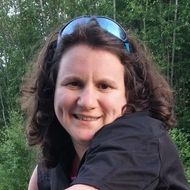BarCamp 2020: How to Invest in Yourself
BarCamp 2020 arranged for the 1st-year graduate students of the 'Management and Analytics for Business' and 'Finance' programmes ended in HSE University - St. Petersburg in early June. Together with students and company representatives, we will tell you what the benefits of this event are and how it was being held in a remote format.

What is BarCamp?
BarCamp is a platform for the interaction of students and employers. 30-day project work at BarCamp is a great opportunity for Master’s students to demonstrate their knowledge and skills in solving cases of companies in real-time mode. It’s a win-win system for companies and students. Companies receive a detailed consulting report and new ideas. Students obtain professional experience and an opportunity to be part of a team. When they complete their projects, students receive reviews of their work, strong skills and aspects for improvement from HSE faculty members and company representatives. Students carry out a critical analysis of the product and bring new ideas to the company.
St. Petersburg School of Economics and Management invites three types of companies to participate in BarCamp. The first type is large Russian and international companies. The second type is successfully launched and functioning start-ups. The third type is social projects. Students chose the companies which let them shine and test their knowledge and skills in the best way.
Each team had a mentor from among the faculty professors and a supervisor from among the company representatives, which made it possible for the students to choose the right focus, formulate the statement of work correctly and achieve the goals set in a short time. For 3 weeks, graduate students had been preparing a substantiated consulting report in two languages for the following companies: L'oreal, Gazpromneft-Aero, Training Institute - ARB, OOO Fidesis, OOO Innovation, Gmathub Online Platform, Ingria Business Incubator, ZAO Eliot, etc.
How was held the event this year?
The event was held for the second time, but only this year it took place online. 120 students of the programmes 'Management and Analytics for Business' and 'Finance' took part in BarCamp. Under the guidance of 12 mentors (the faculty members) graduate students prepared and presented 13 projects for customer companies.
During a month teams were working on their projects in free format. Distance mode allowed expanding the boundaries and involving both regional and international partners. During the project, students were in touch with representatives of companies around the clock, presented their results, and received comments to improve their works. On finishing their work, students presented the results in a large online conference.
Anna Mazurkina, a visiting lecturer at the Department of Management and a manager at Saint Petersburg School of Economics and Management, having a 9-year experience of presenting business reports to such international and state companies like Mercedes Benz, Ministry of Finance of the Russian Federation, the Council of Federation etc, held consultations for the students participating in BarCamp. They were focused on the models of presenting results for the business, highlighting the most important moments and creating posters, and helped students to present their consulting reports in an efficient and professional manner.
Thanks to a distant format, a team of international students worked on a project of the L'Oreal Russia company. The first virtual mobility project called ‘Russian Beauty eCommerce market’ launched by students of the Leon III School of Management together with students of the HSE – St. Petersburg graduate programme 'Management and Analytics for Business' facilitated this. The students got the intercultural experience, and the customer company has benefited from different business school students. The project included three stages: the analysis of the customer behaviour in Russia, the trends and market prospects for e-commerce (triggers for online purchases, reasons for not choosing D2C), market and competitors analysis, analysis of L’Oreal brand and formation of strategic recommendations for the company’s e-commerce.
What impressions did the BarCamp-2020 participants get?
Veronila Bragina, Lead Specialist of Marketing and Strategy Development Unit for AO Gazpromneft-Aero

‘It was the first time I participated in BarCamp as a mentor. I liked how it was organized because a project work format lets students develop practical business skills and immerse into a new business environment.
I was impressed by how well-prepared students were, their commitment, result-oriented mindset, and ability to find relevant information. Each presentation was unique and contained much useful information. Students seemed to be very professional while presenting their projects.
I missed the interaction with some groups. I think that the project implies close interaction with a business representative, but not everyone wanted to use this opportunity. Students who were in touch with business representatives managed to learn more and presented outstanding works. I would like to with BarCamp even more ambitious tasks.’
TorHoksas, a 1-year student of the graduate programme 'Management and Analytics for Business'.

Svetlana Boguslavskaya, analyst in Centre for Applied Research and Development, HSE University — Saint Petersburg

‘Social projects were extremely useful for students. Firstly, graduate students become acquainted with non-profit projects activity which they rarely face in the study courses framework. Secondly, as social projects are versatile, students gain skills in not only business or finance areas but also in social media marketing. Thirdly, students themselves highlight that they pursue excellence in their work to really help develop a socially valued project.’
Azizbek Tashpulatov, a 1-year student of the graduate programme 'Finance’

‘BarCamp was unusual this year because we were working remotely.
Many members of my team were in different cities, and the time difference with some was 6 hours, so it was not easy to arrange an online meeting to discuss a project. However, we managed to schedule phone calls, and everyone felt comfortable with it. Besides, it was hard to come up with ideas about content visualisation. We wanted to do it such a way that the Committee would not have questions about our ideas, so each poster had to be meaningful.
It is great that students of various backgrounds take part in BarCamp. As we found out during our work, some students from our team had experience in creating online presentations. Moreover, we managed to estimate the project effectiveness not only as managers but only as financiers.'
Nikita Isakov, a 1-year student of the graduate programme 'Management and Analytics for Business'.


